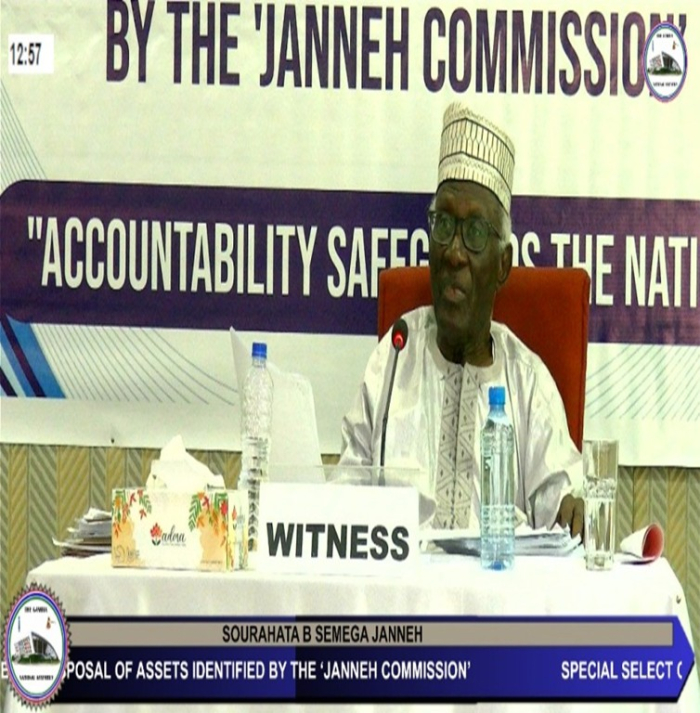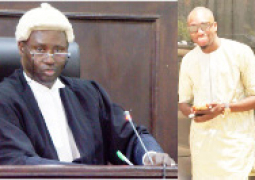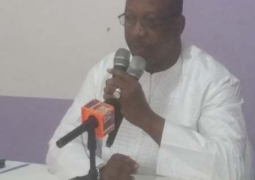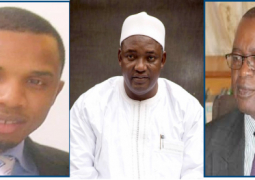
The Special Select Committee, led by Hon. Abdoulie Ceesay, is probing how transparent the processes of selling or disposing assets seized from Jammeh was after the commission reported its findings.
Janneh’s testimony aimed to clarify the original commission’s purpose, authority, and operations.
During his appearance before the National Assembly’s Special Select Committee, Janneh spoke about how the commission was set up, its legal basis, and how it operated.
His responses highlighted some disagreements within the team and clarified his role as chair.
When asked about the legal authority of the commission, Janneh firmly stated that it was based on the 1997 Constitution of The Gambia.
He pushed back against the idea of a “core mandate,” insisting that the commission’s authority came solely from the Constitution.
He stressed the importance of conducting impartial investigations as required by law.
As he addressed questions about his duties as chair, Janneh downplayed any excessive power, saying his main role was to oversee discussions rather than make decisions alone.
He explained that he was told to get familiar with the Commission’s guiding documents, while the other commissioners received detailed instructions. “When disagreements arose, the team discussed them and came to an agreement together,” he emphasised.
Janneh noted that the idea for him to head the commission came from the then-Attorney General, Ba Tambadou.
He pointed out that there were significant differences between the Janneh Commission and later Truth, Reconciliation, and Reparations Commission (TRRC); mainly, the Janneh Commission did not have its own specific law or a dedicated budget, relying entirely on government funds.
A notable moment during the questioning occurred when Janneh immediately wanted to reference a document about Jammeh’s accounts, arguing that it would be part of the evidence anyway. However, the committee’s counsel insisted on formally submitting it first, leading to a brief disagreement.
Counsel Lamin A.M. Dibba asked Janneh if the Commission had worked with any institutions that were responsible for keeping track of frozen assets, such as the Livestock Marketing Agency. Janneh admitted he couldn’t remember any specific interactions with those agencies.
He was also asked if he knew about a lawsuit involving Jammeh that aimed to freeze his assets before the commission started.
Janneh stated he was unaware of this prior lawsuit but acknowledged seeing later a freezing order that covered certain properties and accounts.
Janneh did not confirm whether President Barrow had signed the legal notice establishing the commission.
His emphasis on the commission being rooted in the Constitution and his role as a collaborative leader provides important context as the committee investigates how the identified assets have been managed.
This session highlights the ongoing challenges in addressing the financial aftermath of Jammeh’s rule.
Read Other Articles In Headlines
IMF cautions Senegal over ex-regime’s $7bn misrepresentation
Mar 27, 2025, 10:14 AM




